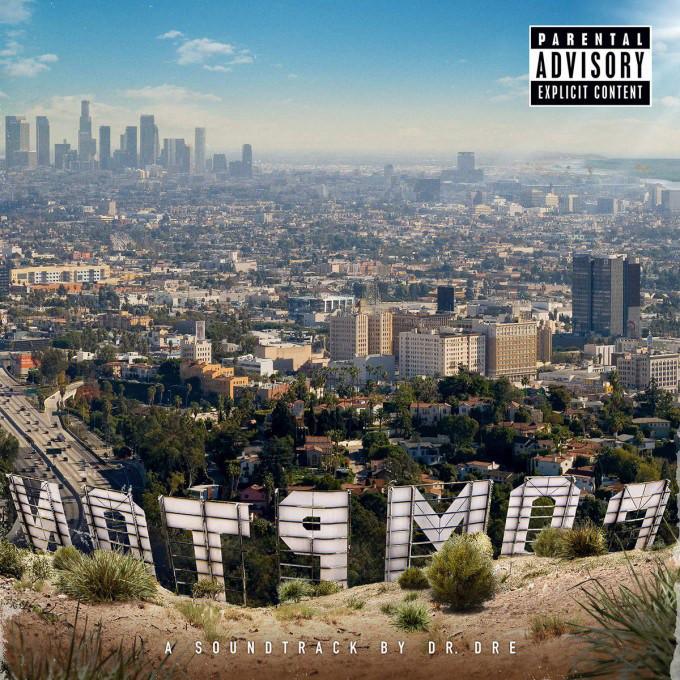“Compton” Album Review
Dre returns after 16 years with an album that doesn’t disappoint
August 31, 2015
Dr. Dre is a California-, and more specifically Compton-, based producer and rapper who has been in the hip hop scene for about 30 years, creating some of rap’s finest masterpieces. As a rapper and producer, he first broke out onto the music scene in the late 1980s with N.W.A., who created a storm in the music industry.
Dre established himself as one of hip hop’s defining voices and from there continued to create musical gems, with albums such as “The Chronic” and “2001.” After these releases, Dre fell silent on the forefront, but continued to push several artists including Snoop Dogg, Eminem, and Kendrick Lamar to fame with his incredible production skills.
For almost 16 years, fans have waited for a new Dre album to satiate their musical palate. Up until recently, fans expected the Doctor to release “Detox,” a follow up to his critically acclaimed sophomore record. However, followers only got tastes of what could have been through other artists’ albums he had helped to produce like “good kid, m.A.A.d. city.”
But as the new “Straight Outta Compton” movie was announced, Dre finally revealed that he had scrapped “Detox” and was instead working on a new album that would be released in conjunction with the N.W.A. biopic. Billed as a soundtrack, fans finally could see the light at the end of the tunnel. A new album had arrived.
And I have to say: it’s pretty good.
The first thing you have to realize with this record is that Dr. Dre isn’t revisiting any sound from the gangsta rap golden age, and he’s not pandering to any traditionalist cries for a classic sound. Instead, he emerges with almost a collaborative piece that brings a wide variety of sounds to the table. Every once in awhile, you can hear some “2001”-style production, but overall, everything on “Compton” has been focused on finding a more modern voice. To do that, Dre brings along a whole cast of producers such as Focus…, DJ Premier, DJ Dahi, and Dem Jointz. Together, they crank out wonky bangers, touching ballads, soulful songs all with multi-dimensional approaches to hip-hop instrumentals. And Dre, as always, adds his Midas touch to every track. Each instrumental is like a gold-dipped rose: refined, smooth, layered, and gleaming. So, in short, the production is immaculate.
But Dre doesn’t stop there; in fact, he brings in almost 20 features to assist him. Among those features are even newer artists that Dre is helping to promote, like King Mez and Anderson. Paak (the latter being one of the people I was most excited for and satisfied by on this record). This swath of rappers and singers helps to freshen up the album and widen the stylistic scope even more.
As far as Dre goes, though, he’s not messing around on this record. He sounds hungrier and livelier than ever, as demonstrated by his performance on the intro track, “Talk About It.” Starting off by boasting that he just “bought California,” Dr. Dre delivers line after line of aggress and energy alongside King Mez, who absolutely murdered his verse. And on top of that, the instrumental is brassy and polished, giving a grand introduction to what is essentially a scattered narrative of Compton as a whole.
A major standout track on “Compton” is, “Genocide,” a song that manages to merge a warped and bouncy instrumental with some cut-throat verses from Dre, who almost has a Busdriver delivery, and Kendrick Lamar (the kid never seems to disappoint, might I add). The descending bassline and the icy synths make for a really, really memorable instrumental. That seamless convergence of strong lyricism and production continues throughout most of the album. Most.
There are some disappointing moments on “Compton,” though. I think the most notable examples of downfalls are on tracks like “Loose Cannons” and “Deep Water,” where Dre has different features act out scenes. On “Loose Cannons,” Sly Pyper ends up killing a woman and then burying her in a field. I understand why he might put it in because it’s a real part of the world Dre came from. But something with this emotional depth requires actors who are able to give good performances, and Pyper is by no means in touch with his actor side. As a result, the whole outro on the track is cringeworthy. And on “Deep Water,” Anderson .Paak, bless his soul, acts as a drowning man. I appreciate the attempts to make the album more vivid and cinematic; I just have a problem with the execution.
Another flaw for me on “Compton” is Dr. Dre’s somewhat insincere and/or melodramatic lyrics. On songs like “It’s All On Me” and “Darkside/Gone,” Dre really stretches the situation to add some sort of gravity to his words. He somehow tries to paint a picture of all this stress he has to perform well, which may be somewhat real, but on the other side, he’s a billionaire who has almost never had a misstep.
Probably the most impressive song on this album has to be “Animals,” which features some seriously soulful vocals from Anderson .Paak. It all focuses on media portrayal of black neighborhoods and how their coverage often only shows dramatic or negative situations. The track also was built around a sweet instrumental from DJ Premier.
Overall, I was pleasantly surprised by this album. After such a sudden announcement, I assumed “Compton” was going to be sloppily put together. Luckily, it wasn’t. The production was on point, the features were incredible, and the songs were memorable. Even though I was unimpressed by the more “vivid” tracks, the rest of the album was consistently outstanding.
Grade: A-



